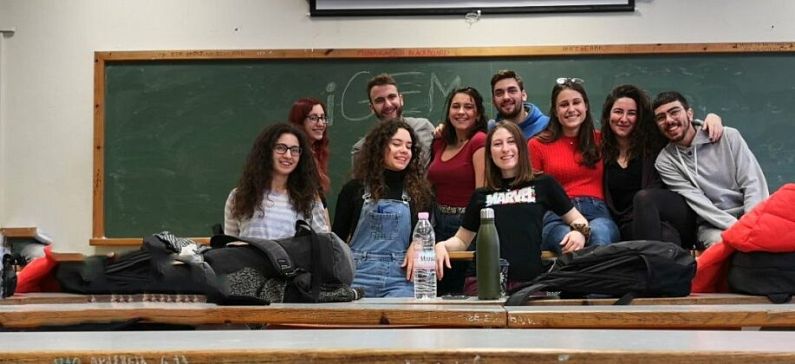
Greek students have created a revolutionary gel that regenerates burnt land
This year, for yet another year, our country experienced in the worst possible way the destructive fury of the fires, experiencing one of the worst, if not the worst period in its history, with tens of thousands of burnt acres and the fiery torrent burning for two weeks in the wider region of Evros and Alexandroupolis, but also in Attica at the foot of Parnitha.
Whether it is the effects of climate change or arson, one thing is certain. That the oxygen lungs surrendered to the flames must be reforested in the best and fastest way possible. A solution to this very serious issue is provided by the student interdisciplinary team “iGEM Thessaloniki” of the Aristotle University of Thessaloniki.
Design a gel of shellfish shells and citrus peels that will bring life to burnt land. The gel, which is the first application of Synthetic Biology in forested areas, will contain seeds of native plants, which under favourable conditions will germinate, rehabilitating the ecosystem after a fire. It is essentially a hydrophilic polysaccharide polymer in the form of a hydrogel, which will contribute to the absorption of water as well as water-soluble nutrients, and will be placed on the burnt soil. The name ‘Euphoresis’ is derived from the combination of the Greek words ‘euphoria’ and ‘genesis’.
The scientist in charge is Michalis Aivaliotis, Associate Professor of the Department of Medicine of the Aristotle University of Thessaloniki, says that “the gel contains microorganisms and seeds that can help a burnt area to slowly recover its qualitative characteristics so that mainly plants and microorganisms can be reborn there. These micro-organisms help to regenerate the soil in the burnt area and act as a sponge, absorbing water and using it to grow seeds. It is, after all, very important that micro-organisms bind toxic substances and, through a form of regeneration, convert them into elements useful for the environment.
Regarding the specific characteristics of each ecosystem affected by forest fires, Mr.Aivaliotis, explained that “this material should normally be used by forestry experts – environmentalists, who will study the ecosystem where the material will be placed to regenerate the forest in the form it was before”.
The team, with whom the rector of the Aristotle University of Thessaloniki, Professor Dimitrios Kovaeos, met on Monday, will represent with “Euphoresis” the Aristotle University of Thessaloniki in the “iGEM Competition”, an initiative of the MIT University. It has not been produced yet. At the moment the first tests are being carried out and the competition will test its characteristics. If it is found to be viable and feasible, then AUTH and the team will undertake to develop the idea while the competition framework will contribute to the process, in which opinions and suggestions for optimization are expressed,” added Aivaliotis.
This year’s “iGEM Thessaloniki” team of the Aristotle University of Thessaloniki consists of 18 members and is made up of undergraduate students from the Department of Biology, Markos Mathioudakis, Angeliki-Maria Papapanou, Asimenia Ioannidou and Stefanos Anagnostopoulos, from the Department of Chemistry Angeliki-Argiri Savvopoulou-Tzakopoulou, Ioanna Gerogianni and Michaela Ververi, from the Department of Medicine Artemis-Chrysanthi Savva and Panagiota Baka, from the Department of Pharmacy Rafael Andreou and Thetis Tsinoglou, from the Department of Agriculture Nefeli-Maria Makri. Also participating in the team are Sultana Delizisi from the Democritus University of Thrace and Niki Efstathiou from the International Hellenic University. The trainers of the team are Dr. Konstantina Psatha from the Department of Medicine of the Aristotle University of Thessaloniki and Christos Giannakopoulos from the Department of Biology of the Aristotle University of Thessaloniki. The scientific co-responsible of the team is Spiros Gellis, Associate Professor of the Department of Biology, Director of the Department of Botany and head of the Cyanolab research group of the Aristotle University of Thessaloniki.








